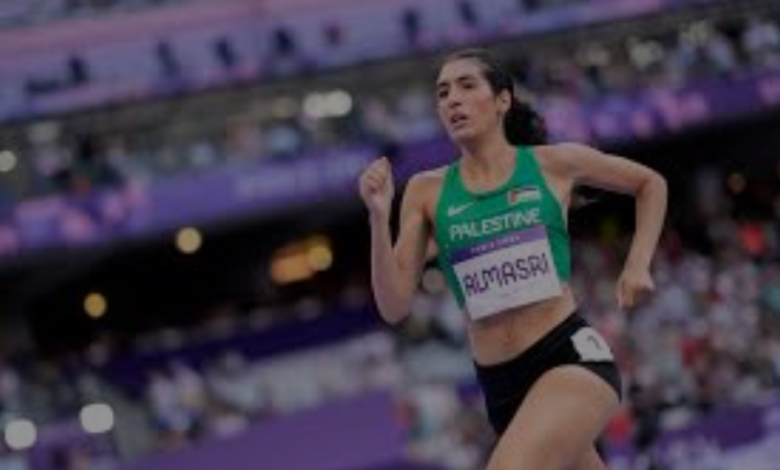Palestinian runner Layla Almasri says ‘We’re diplomats for our people’.

Most recently, a rising star on the international scene was Layla Almasri of the Athletics World, who argued strongly: “We’re diplomats for our people.” A celebrated runner from Palestine, Almasri stands not merely for an engendering of athletic potential, she personifies aspirations, class struggles, and a people’s resilience, overlooked so many times by political friction. Her statement underlines athletes’ broader role in the international arena, especially those from marginalized or conflict-ridden areas.
From the war-torn streets of the Gaza Strip, Layla Almasri’s journey to the top of international athletics is a testament to her unwavering resilience. Born into a life of conflict, financial crisis, and restricted movement, Almasri’s path could have easily been derailed. Almasri’s assertion that athletes from conflict zones serve as ‘diplomats for our people’ is a powerful reminder of the influence of sports in international relations.
By competing internationally, Almasri showcases her athletic potential and popularizes the Palestinian cause, each race, each medal, and every interview becomes an opportunity to emphasize what it feels like to be a Palestinian, the kind of struggles they go through, and to crusade for their rights and recognition. Here, her presence at international sporting events is soft diplomacy, where everything she achieves and the visibility of her person serve to increase awareness of the Palestinian problems.
The concept of an athlete as a diplomat has been introduced previously. Throughout the annals of history, sports have allowed individuals to reach beyond political boundaries and foster mutual understanding. From the symbolic fight of Muhammad Ali against racism to the role that athletes from South Africa played in the anti-apartheid movement, sports have provided a stage for addressing or challenging social injustices. This makes the role of Almasri a continuation of that tradition, using her athletic platform to amplify the voices of people seeking global recognition and support.
Almasri does not stay within the boundary of local politics, and the case is as relevant globally, where sports and diplomacy have always walked hand in hand with each other. As a diplomat-athlete, she challenges the more established notions of diplomacy, referring to individual strength in making some change, shaping certain narratives with personal actions, and visibility. In that sense, Almasri and athletes like her are not competing to win medals, instead, they struggle to foster understanding and bridge gaps.
Her statement that athletes are “diplomats for our people” takes on a poignant reminder of the broader impact that sports can make as Layla Almasri continues to be on the rise in her athletic career. As much as what she can represent in athletes’ determination and visibility is not just about competing, the position should be one in advocacy, another voice in making change, and the weighstone of hopes and dreams for the people in quest of peace and recognition on their name somewhere on the world scene.




